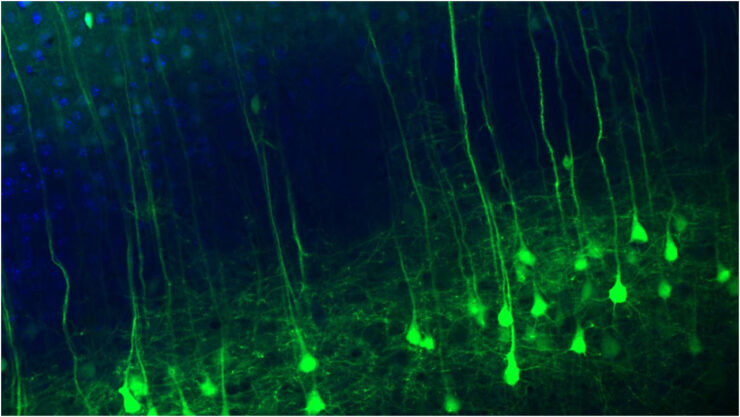Understanding the molecular mechanisms that drive cell-type-specific gene expression in the brain is crucial for advancing circuit neuroscience. The wealth of genome-wide information on gene regulation available today puts us in the position to decipher complex gene regulatory networks, including cell-type-specific promoters and enhancers that drive neuronal cell specification and function.
We are looking for someone who would like to work on this topic in an exciting collaboration project. This project aims to harness deep learning methods inspired by recent technological advances in the field to design synthetic regulatory elements capable of driving precise gene expression in specific neuronal cell types from viral vectors. We strive to model the complex relationship between DNA sequence and gene expression across different neuronal cell types by integrating genomic data with cutting-edge deep neural network architectures. These models will be employed for the de novo design of synthetic regulatory elements tailored for specific cell populations in order to label and interrogate distinct neuronal circuits in the brain.
The successful applicant will work with the Zenke and Keller groups, in close exchange with FMI’s bioinformatics facility and other groups focusing on gene regulation, and apply these techniques to a range of neuronal cell types in the mouse cortex. We will validate the designed synthetic regulatory elements using molecular and functional assays, advancing our understanding of neuronal diversity and circuit function.
Key Objectives:
- Develop deep learning models to predict cell-type-specific regulatory element activity based on DNA sequence.
- Design and experimentally validate synthetic regulatory elements for labeling specific neuronal cell types in vivo.
- Investigate the regulatory mechanisms that define cell-type-specific gene expression in the brain.
- Apply these techniques to study neuronal circuits and their roles in behavior in mouse models.
We are looking for candidates passionate about neuroscience and computation with a quantitative background in bioinformatics, physics, mathematics, or related fields who have experience in data science and deep learning. Ideal candidates should be curious about the neural underpinnings of computation in the brain while enjoying taking on complex mathematical and coding challenges.
Role: Postdoc or PhD student
For additional details see https://zenkelab.org/jobs/
Image by Bea Saenz de Buruaga showing expression of an AAV vector in L5 neurons in cortex.
